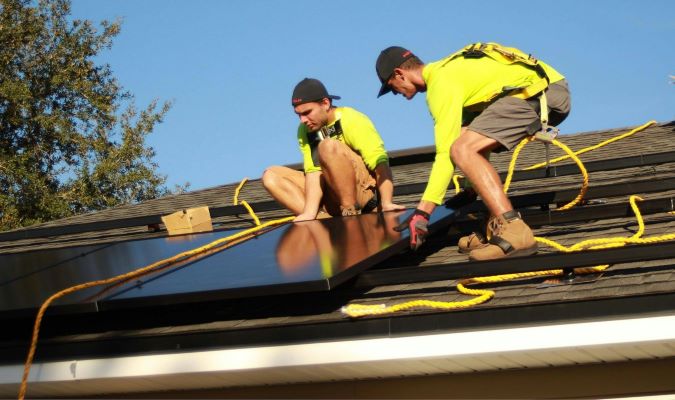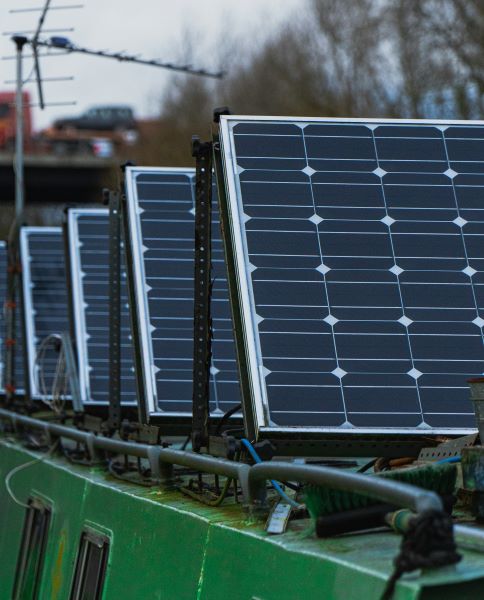
Introduction to Solar Panels in Texas and Its Benefits
Are you tired of skyrocketing energy bills and longing for a sustainable solution? If so, solar panels in Texas might just be the answer you’re looking for. With abundant sunshine and vast open spaces, the Lone Star State stands out as a prime location for harnessing solar energy. Not only do these panels offer an eco-friendly alternative to traditional power sources, but they can also lead to significant savings over time.
In recent years, more Texans have turned to this renewable energy option. The benefits extend beyond just financial savings; a sense of pride comes with contributing to a cleaner environment whether you’re considering residential or commercial installations, understanding how Texas solar panels work is essential for making informed decisions about your energy future.
Let’s dive deeper into this illuminating topic and explore everything you need to know about going solar in Texas!
The Growth of Solar Energy in Texas

Texas has emerged as a leader in solar energy production. With vast open spaces and abundant sunshine, the state offers an ideal environment for harnessing solar power.
In recent years, the number of installed solar panels in Texas has skyrocketed. Homeowners increasingly opt for this renewable source to offset high utility bills and reduce their carbon footprint.
Major cities like Austin and San Antonio have significantly invested in solar infrastructure, encouraging residential and commercial installations. Local governments often support these initiatives through various programs that promote sustainability.
Additionally, technological advancements have made solar systems more efficient and accessible than ever before. As prices drop and performance improves, more Texans discover the benefits of going solar.
The future looks bright for Texas Solar Panels as they continue to gain traction among environmentally conscious residents seeking cleaner energy solutions.
Types of Solar Panels: Which One is Right for You?

When considering solar panels in Texas, knowing the different types available is essential. Each option has unique features and benefits that might suit your needs.
Monocrystalline panels are popular for their high efficiency and sleek design. They take up less space while producing more energy, which makes them a great choice for homes with limited roof area.
Polycrystalline panels are another option. These tend to be more budget-friendly but offer slightly lower efficiency than their monocrystalline counterparts. They’re still effective, especially if you have ample roof space.
Thin-film solar panels provide flexibility and lightweight construction. While they may not be as efficient as the other two types, they’re ideal for unconventional installations or when aesthetics matter most.
Evaluating your specific energy needs and roof characteristics will help you determine which Texas solar panels are right for you.
Factors to Consider Before Installing a Solar Panel System in Texas
Before diving into solar panel installation in Texas, consider your roof’s orientation and condition. South-facing roofs typically capture the most sunlight. Ensure your roof is structurally sound; repairs might be necessary before adding panels.
Next, evaluate your energy consumption patterns. Analyze your monthly utility bills to determine how much power you use. This insight helps tailor a system that meets your needs.
Local climate plays a role, too. While Texas enjoys abundant sunshine, storms can impact efficiency and maintenance requirements.
Permitting and regulations vary by city and county. Familiarize yourself with local guidelines to avoid any surprises during installation.
Assess shading from nearby trees or structures. Even partial shade can significantly reduce solar panel output, affecting long-term savings and performance.
The Cost of Going Solar in Texas
The cost of solar energy in Texas can vary widely based on several factors. On average, homeowners might spend between $25,000 to $50,000 for a solar panel system. This range depends largely on the size and type of installation and whether you want battery backup. Your batteries will start at about $5,000 for a small house with window air units and increase as your house gets bigger.
Your energy needs and roof condition influence installation costs. A larger home will require more panels, increasing the overall price. Moreover, choosing high-efficiency panels often increases upfront costs but can result in greater long-term savings.
Financing options like loans or leases can also affect how much you’ll pay initially versus over time. Many residents find these alternatives make solar power accessible without large upfront outlays.
It’s essential to consider the return on investment as well. With rising electricity rates and ample sunshine in Texas, many families see significant savings within just a few years of installation.
Incentives and Rebates for Solar Panel Installation in Texas
Texas offers various incentives and rebates to encourage homeowners to adopt solar panels. These financial benefits can significantly reduce the initial investment required.
One major incentive is the federal solar tax credit, which allows you to deduct a percentage of your installation costs from your federal taxes. This program has been extended, making it an attractive option for many.
Many utility companies in Texas provide additional rebates for installing solar systems. These rebates vary by provider but can help cover part of your costs.
Local governments also offer programs that may include property tax exemptions for solar installations. Thus, adding Texas solar panels might not increase your property taxes.
Staying informed about these opportunities is crucial, as they can change frequently or be subject to funding limits. Researching available incentives ensures you make the most out of going solar in Texas.
Maintaining and Maximizing the Efficiency of Your Solar Panels
Maintaining solar panels is crucial for ensuring their efficiency. Regular cleaning helps remove dust, dirt, and debris that can block sunlight. Depending on your location in Texas, rain might wash away some grime, but a seasonal scrub is often necessary.
Check for shading issues, too. Nearby trees or buildings may cast shadows over your panels as they grow. Trim back any branches to keep the sun shining bright on your system.
Monitor performance through an app or inverter reading. Sudden drops in energy production could signal a problem requiring professional inspection.
Consider scheduling routine check-ups with a qualified technician every few years. They can identify wear and tear early on and adjust for optimal performance.
By staying proactive with maintenance, you ensure that your investment continues to pay off while supporting sustainable energy use in Texas.
Conclusion: Is Going Solar in Texas Worth It?
As you consider installing solar panels in Texas, consider the long-term benefits. The state boasts abundant sunshine, making it an ideal location for harnessing solar energy. With many installations and technological advancements, now is an opportune time to explore your options.
The investment can lead to significant savings on your electricity bills over time. Plus, with various state incentives and rebates available, the initial costs may be more manageable than you think.
Maintenance is also relatively straightforward, allowing homeowners to enjoy hassle-free energy generation year after year. When properly maintained, solar panels can significantly increase property value while contributing positively toward environmental sustainability.
Choosing solar panels in Texas presents a compelling case for both economic and ecological reasons. It’s worth evaluating how this renewable resource aligns with your lifestyle and budget as you make this important decision.
